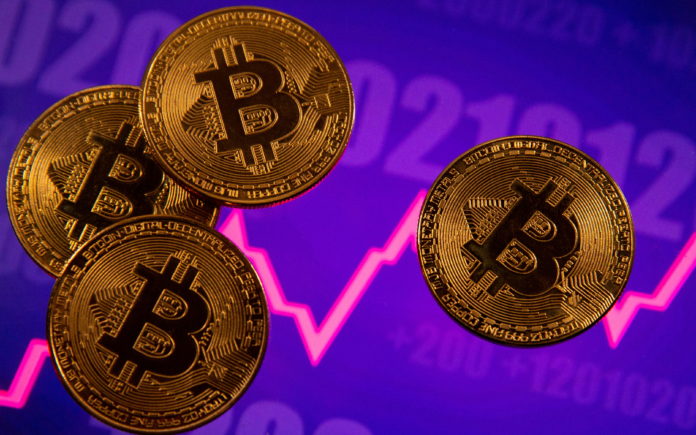
In the first instance of an entire nation adopting bitcoin as a substitute for its national currency, El Salvador, the New York Times wrote that the crypto experiment is being watched to see “whether it becomes another tool of control and enrichment for autocrats and corporations.”
If that sounds familiar, it’s because the economic-political philosophy of neoliberalism is based on some core ideas, including:
- Distrust of elected government;
- The elevated role of the “free market” rather than regulation, to settle disputes in the marketplace;
- The privatization of all publicly-owned and managed services such as Medicare, Social Security, and even public utilities, such as electricity and garbage collection, and;
- Libertarianism, which believes in the importance of any individual doing what is right for themselves at the expense of the greater good or advancing the public interest.
In short, neoliberalism is a system that benefits the haves and not the have-nots. It is a great system to justify the wealthiest. It puts in place a judicial and economic system that allows the rich to expand their wealth and preserve it against any bottom-up social, economic, and political change.
As for bitcoin, it may well become another phase of rampant speculation, indicative of a sick economy that will leave many investors owning a losing investment.
Why Hype Behind Crypto Fits into the Neoliberal Scheme
In June 2021, the small, poor, conservative country of El Salvador allowed bitcoin to be used nationally alongside the national currency and the US Dollar. This marked the first time any nation has adopted bitcoin as a national legal tender.
The country’s 40-year-old, populist president, Nayib Bukele, made the surprise decision to use crypto nationally without public debate. The New York Times reports that this decision was not popular. As much as 91% of the population opposed it, but Bukele pushed it through regardless.
The danger and why neoliberalism may be the driving force behind the adoption of crypto are critical parts of the El Salvador story.
As the Times article notes: “Although all bitcoin transactions carry a code to ensure transparency, Mr. Bukele (the nation’s president) has treated the bitcoin policy as a state secret. He has classified all information related to Chivo Wallet (the national platform to use bitcoin), which was created with taxpayer funds, but is run as a private enterprise by undisclosed individuals.”
This last sentence should be of interest to anyone who knows about the tentacles of neoliberalism. 
The rule of neoliberalism is to usurp publicly-paid, taxpayer projects and convert them for private use. This is what happened in Russia and other old Stalin-era nations and gave rise to the oligarchs. That’s why El Salvador’s bitcoin experiment is suspect.
El Salvador created the bitcoin program using taxpayer funds, “but is run as a private enterprise by undisclosed individuals.” As such it is a classic case of neoliberalism in action.
As expected, Bukele got the bitcoin program enacted because he is a dictator. “Mr. Bukele’s control of the country’s congress and courts, on Sept. 7, the government made all vendors legally obligated to accept bitcoin,” the Times article said.
And in a subsequent series of events that would make Donald Trump and his oligarch friends salivate, the Times said that there has not been any accountability about where $150 million the El Salvador government spent on the US dollars and the crypto that was used in the program. There also are no clues about where the program’s money is located or what it is worth.
The Bukele program also does not have any safeguards in place to prevent money laundering. This would make it very attractive to anyone interested in tax evasion and others who want to engage in accounting crimes.
Crypto Hype and Neoliberalism = Corruption
Crypto is now a $2 trillion a year global industry, and the US financial media, which is always ready to push a new investing fad, is breathless about explaining why crypto is “the next new great thing.”
The problem is that no credible financial or investment professional knows why crypto fits into any financial planning program or why it belongs in an investment portfolio.
Unlike stocks and bonds, crypto does not pay dividends, and its value fluctuates daily, like gold. But at least gold has some fundamental factors: a long price history, industrial applications, ownership in various forms (as coins, bullion, in mining stocks, and mutual funds and ETFs), and it is held by governments worldwide. Crypto also does not reduce portfolio risk.
Crypto has none of these fundamentals, but in their quest to create new (and often unneeded) financial products, some futures and equity exchanges plan to introduce crypto futures and ETFs for speculative purposes. At the same time, they are also implicitly acknowledging that crypto is not a legitimate asset class.
Crypto is Part of Neoliberalism’s Financialization of the Marketplace
One of the characteristics of the last stages of capitalism is monopoly capital or the concentration and management control of entire corporate sectors by a small number of owners.
Monopoly capital requires monopoly-finance capital, multinational corporate and banking dominance, monopoly financial alliances, and global financial synchronization. In order to make the flow of capital easier for global businesses and the wealthy, a Washington-Wall Street power structure was developed based on neoliberal goals to create a new system based on money politics.
A core component of this plan is to create vehicles for speculative finance. Its elements are abstract forms of money (capital) that hate regulation and essentially work against state (public) objectives. This makes all the hype behind crypto a vital part of this scheme.
The popularity and proliferation of crypto also come at a time when the US has deindustrialized. This means that huge investments are now made in speculative schemes that have nothing to do with the real economy, the one that produces actual physical goods and services.
Deindustrialization (the closing of factories and manufacturing plants) and the demise of the real economy force people to find new ways to generate income. That’s why we see more ads for online gambling, speculation (flipping houses, day trading, SPACs), credit/debit cards, payday loans, commission-free trading, buying fractional shares of stock, and home equity loans. These are all ways to make average Americans into a permanent creditor class.
And to fuel the belief in the American Dream, we also see more cable programs aimed at budding house flippers, Shark Tank contestants, and the glorification of gig economy workers or people working multiple jobs to make ends meet.
The Dangers of the Financialization of the Economy
As Cheng Enfu and Lu Baolin write in the article, “Twenty-First Century Neo imperialism,” in The Monthly Review (May 2021), “Increasingly the trade in financial products is separated from production: it is even possible to say that it has nothing to do with the production and is solely a gambling transaction.”
The demise of an economy that produces physical products helps explain the popularity of crypto. Speculating in crypto is an extension of online gambling. Still, it also creates temporary asset bubbles (in housing, artworks, SPACs, or Robin Hood stock), the illusion that fuels the “wealth effect.” This gives naïve speculators the temporary idea that crypto has “value,” even if it only lasts a few days.
As Enfu and Baolin write, “Excessive financialization will inevitably lead to the virtualization of economic activities and the emergence of huge bubbles of fictitious capital.” (p. 31).
This is the dark blueprint for all crypto. When ill-informed financial advisors and sophisticated investment firms recommend buying crypto for individual investor portfolios, they inject the virus of “fictitious capital” into their advisory system.
When this happens, investment professionals should accept responsibility when the bubble bursts.










